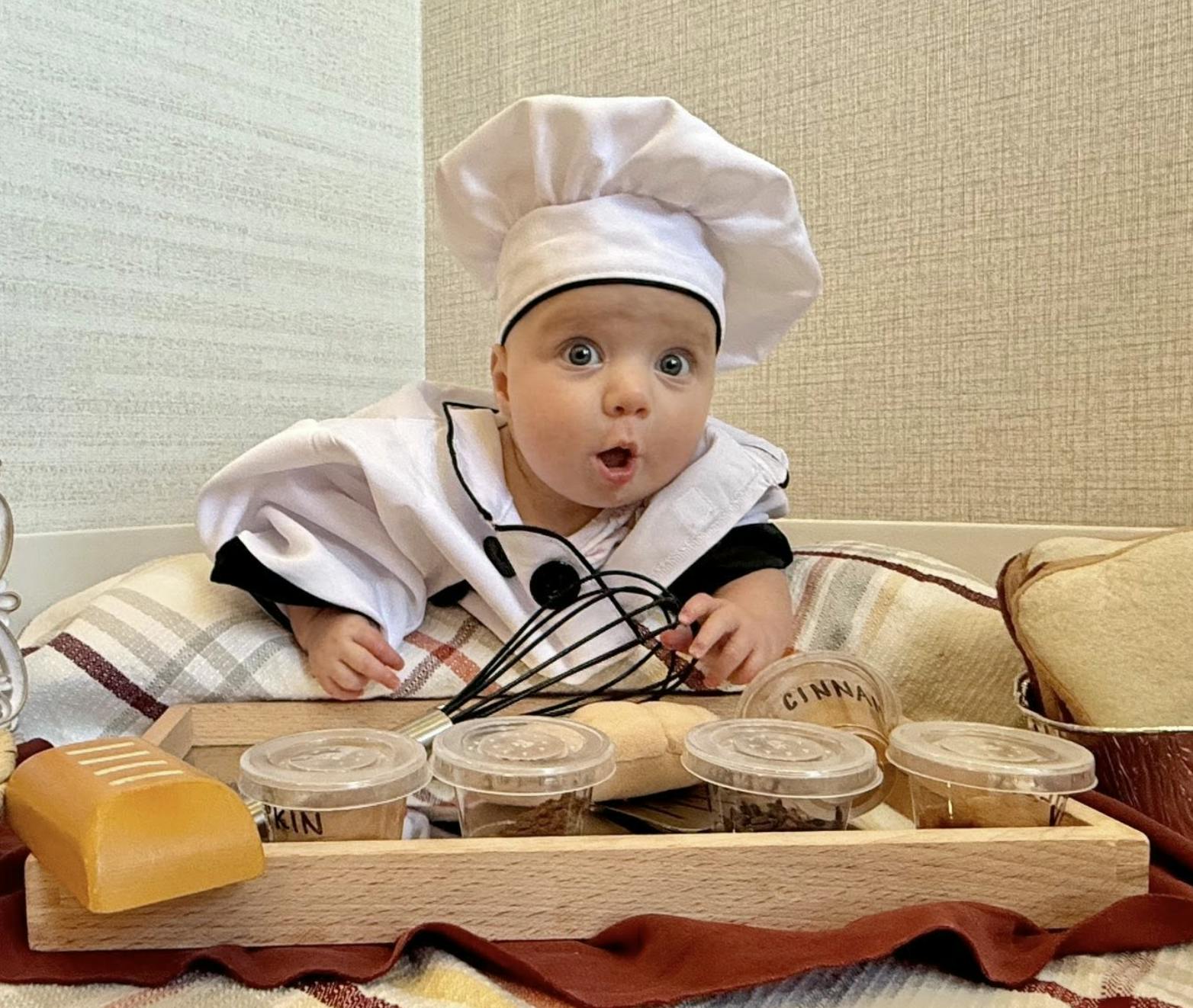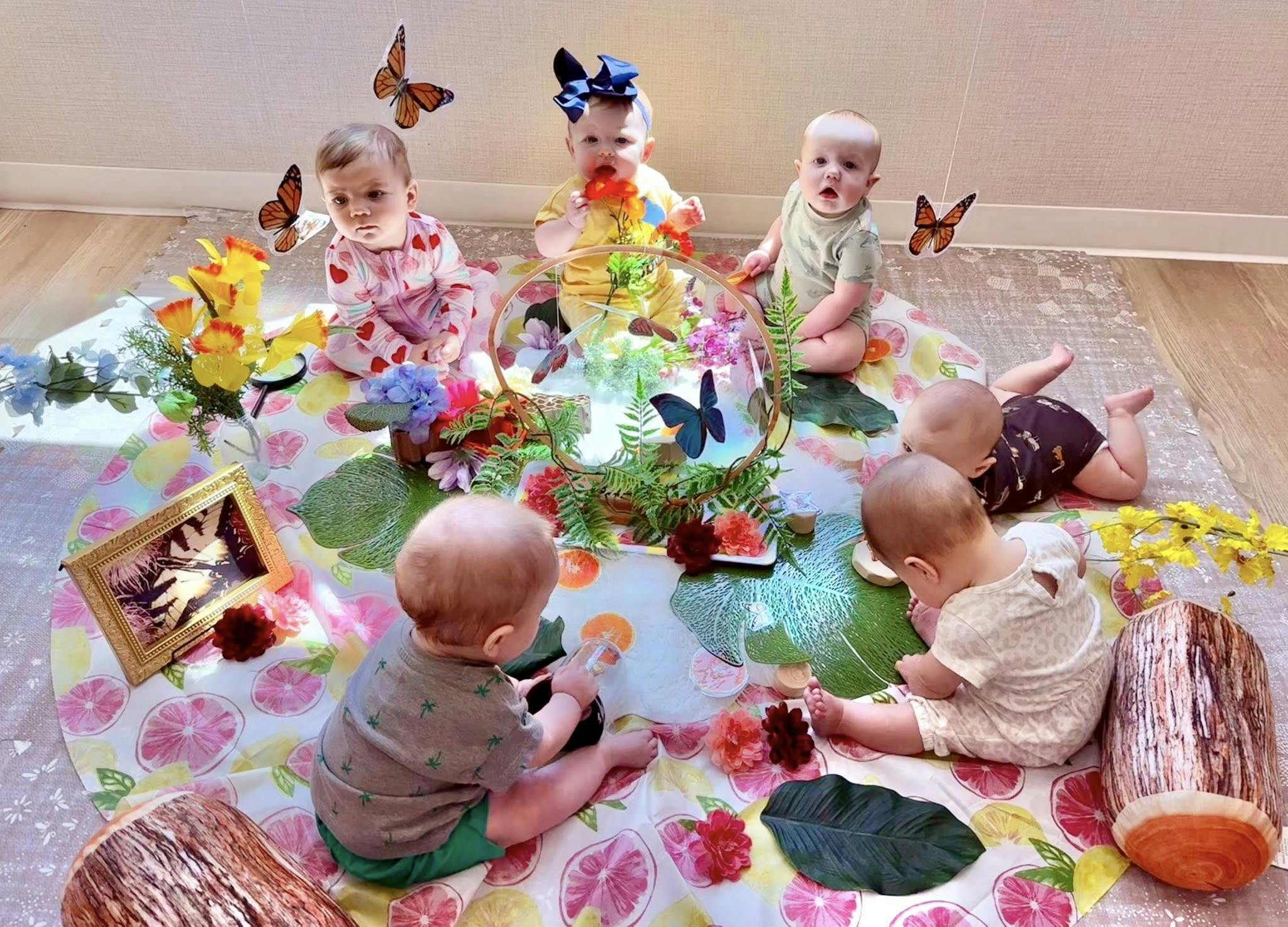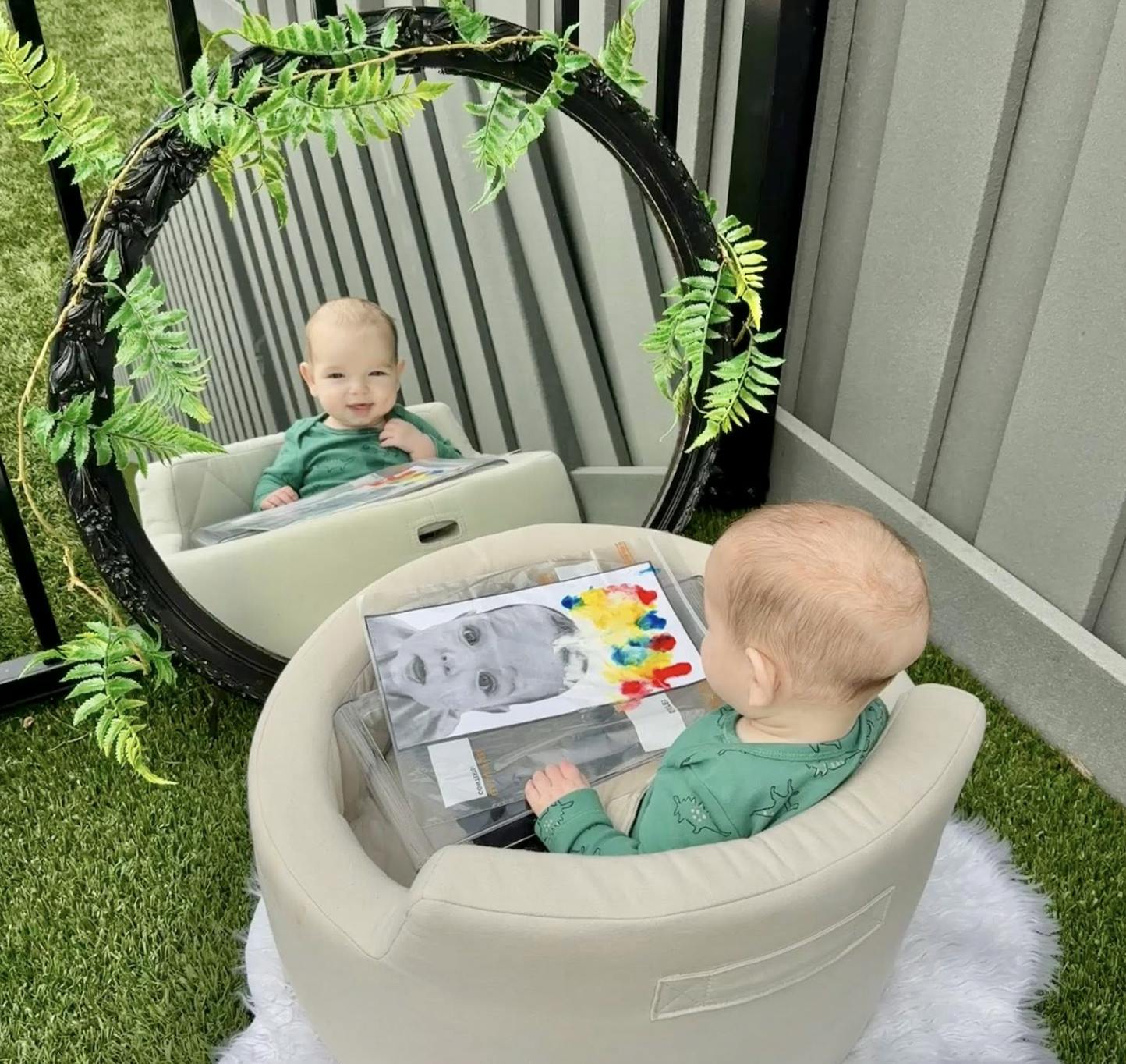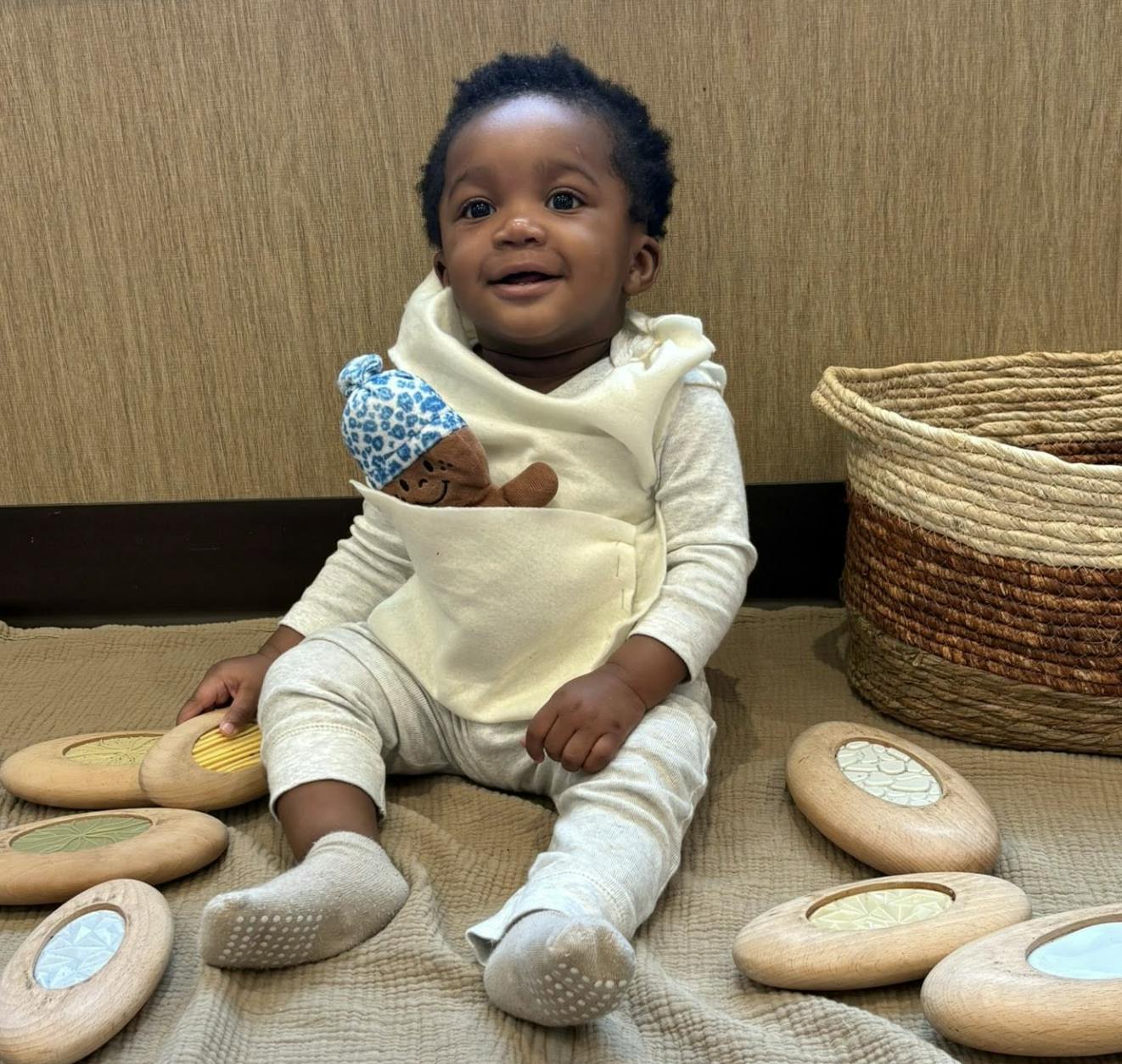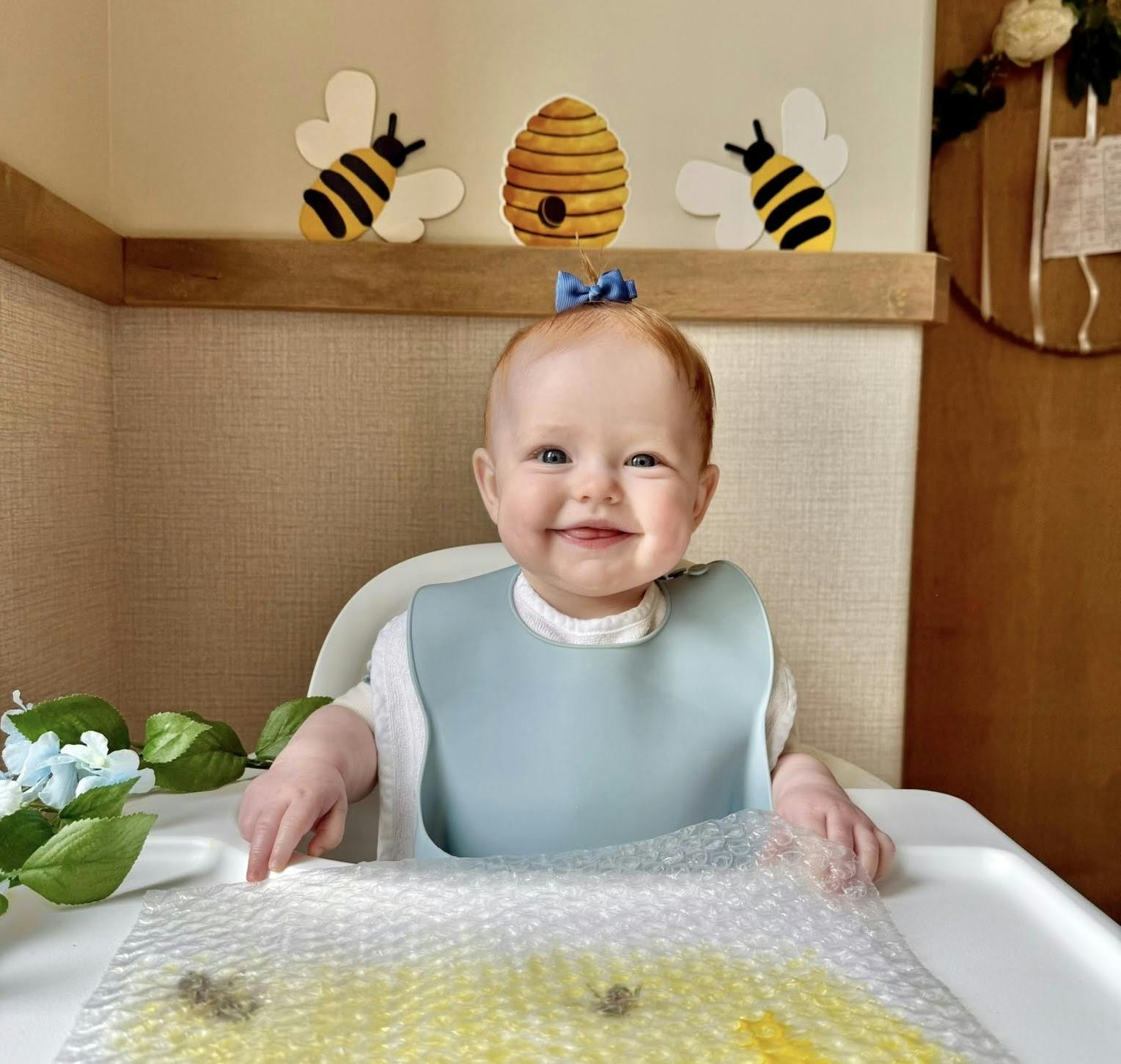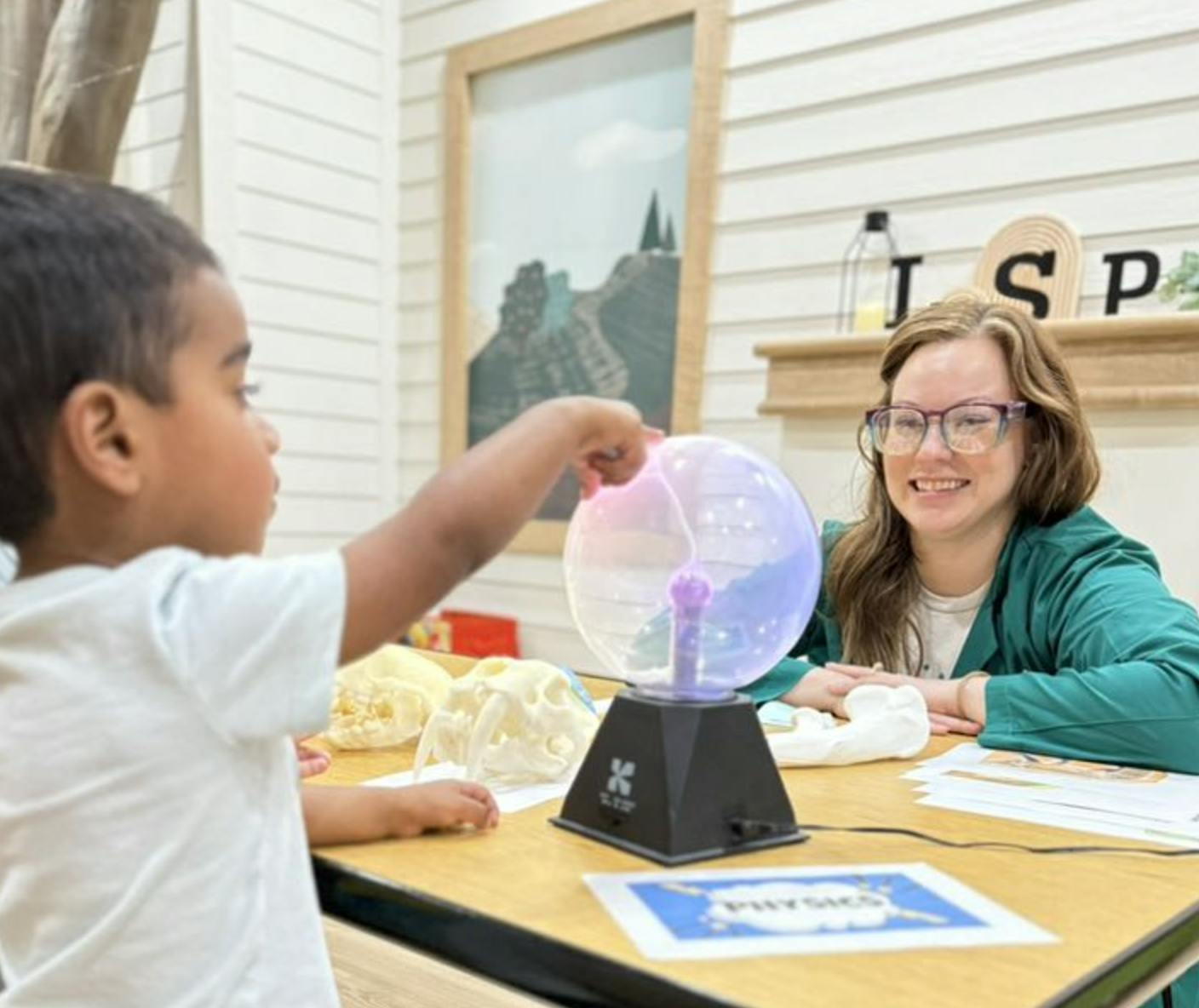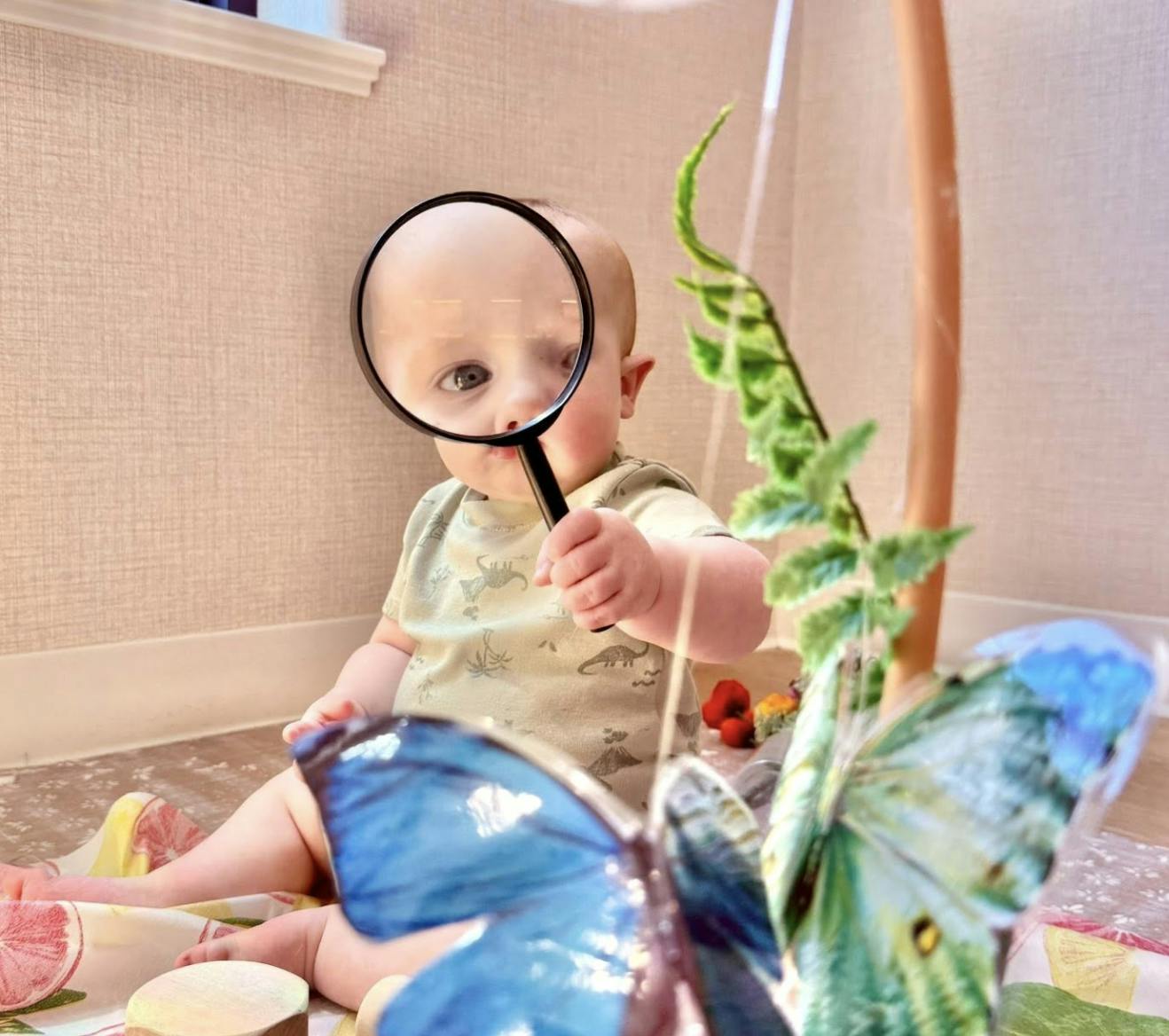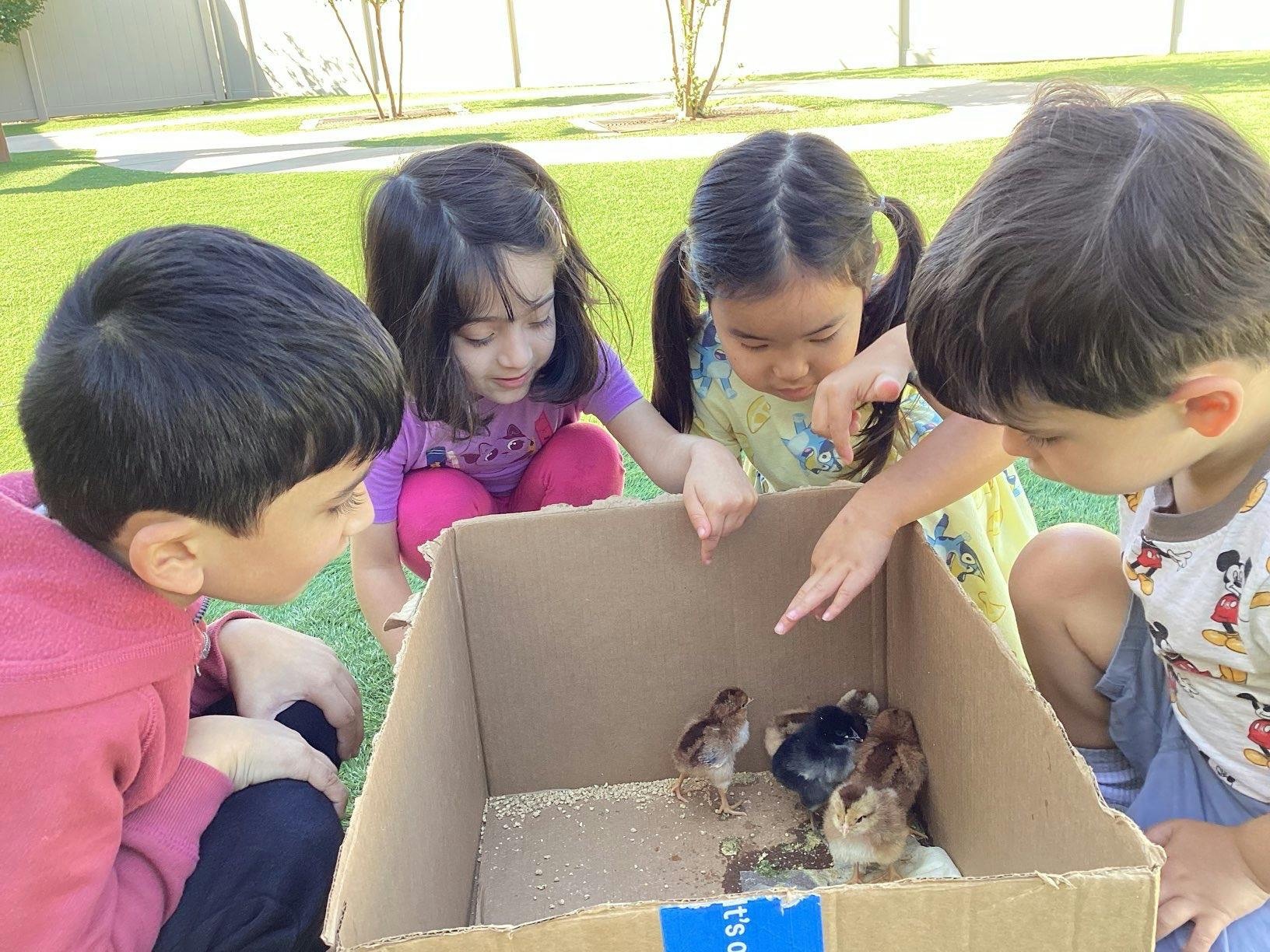
September 25, 2025
What Education Looks Like in Infant and Toddler Daycare Programs
When most people think of education, they picture backpacks, desks, and pencils. But did you know that learning starts long before children ever step foot into a classroom? In our infant daycare program and our toddler daycare program, we see every day that our littlest students are natural explorers. From the moment they’re born, their brains are soaking up information like little sponges. Education at this age doesn’t look like textbooks. It looks like play, connection, and discovery.
The first three years of life are some of the most important for brain development. In fact, during this time, more than one million new neural connections form every second. That’s why infant and toddler education matters so much: every cuddle, every game, and every song helps shape the foundation for future learning.
Learning Through Play
For infants and toddlers, play is learning. That’s why you’ll often hear early educators say “play-based learning.” Rolling a ball back and forth teaches babies about cause and effect. Stacking blocks helps toddlers understand balance, gravity, and problem-solving. Singing songs builds early literacy and listening skills. Even peek-a-boo is an important lesson in object permanence!
The beauty of play is that it’s joyful. Children don’t even realize they’re building the foundations for language, math, science, and social skills. And when adults join in, children gain even more from the interaction. Something as simple as clapping together after stacking blocks reinforces accomplishment and encourages persistence.
Social and Emotional Growth
Education in the infant and toddler years goes far beyond ABCs. At this stage, one of the most important lessons is how to connect with others. Children are learning how to form relationships, express their feelings, and begin to empathize.
When a toddler offers a toy to a friend, they’re practicing kindness and cooperation. When a caregiver comforts an infant, that child learns trust and security. These social and emotional building blocks are just as essential as academic skills, because they shape how a child will approach learning and relationships for the rest of their lives.
Language Development Everywhere
Babies don’t start speaking right away, but their education in language begins on day one. Every time you read aloud, narrate what you’re doing, or sing a silly rhyme, you’re giving your child valuable exposure to language.
Toddlers, meanwhile, are in the thick of learning how to express themselves. They’re experimenting with words, gestures, and even tone of voice. Encouraging conversation—even if it’s made up of adorable toddler-isms—builds vocabulary and confidence.
Educators and parents can help by reading daily, asking open-ended questions (“What do you see outside the window?”), and modeling rich vocabulary. The more language children hear, the stronger their foundation for literacy becomes.
Motor Development in Motion
Infant and toddler education isn’t just about minds. It’s about bodies too! Developing fine and gross motor skills is a huge part of early learning.
- Infants practice lifting their heads, grasping rattles, and rolling over.
- Toddlers move on to climbing stairs, running across the playground, and scribbling with crayons.
Every wobbly step or finger-paint swirl builds coordination and strengthens brain pathways related to movement and planning. Activities like tummy time, stacking cups, and dancing to music are all forms of education, disguised as fun.
Sensory Exploration
Infants and toddlers learn with all five senses. That’s why sensory play is so valuable. Touching soft fabrics, tasting new foods, listening to different sounds, and exploring safe textures help children make sense of the world.
Ever seen a toddler fascinated by pouring water from one cup to another? They’re not just making a mess. They’re learning about volume, cause and effect, and concentration. Sensory play also helps children self-regulate by calming their emotions and giving them a safe way to explore.
The Role of Caregivers and Teachers
Parents, caregivers, and teachers are the “guides” in this early educational journey. Instead of formal lessons, they create environments rich in opportunity. A basket of sensory toys, a nature walk, or a finger painting activity are all learning invitations. Educators observe what fascinates each child and gently extend those interests into deeper exploration.
For example, if a toddler shows curiosity about bugs, a teacher might provide magnifying glasses and picture books about insects. If an infant enjoys shaking a rattle, a caregiver might introduce instruments with different sounds. This approach respects each child’s natural curiosity while ensuring they feel safe, loved, and supported.
The Importance of Routine and Structure in Infant Daycare and Toddler Daycare Programs
Education for the youngest learners also includes the rhythm of daily routines. Consistent nap times, meal times, and play times create a sense of security. Within that predictability, children feel confident to explore.
Even everyday routines become learning opportunities: washing hands before lunch teaches hygiene, cleaning up toys introduces responsibility, and circle time teaches patience and group participation.
The Environment as a Teacher
Early childhood educators often refer to the environment as the “third teacher” (after parents and educators). A thoughtfully designed space encourages curiosity and independence.
- Infants benefit from cozy, safe spaces with soft mats and age-appropriate toys.
- Toddlers thrive in areas where they can move freely, choose activities, and interact with materials at their own level.
Low shelves with baskets of toys, natural light, calming colors, and outdoor spaces all create opportunities for exploration. When children can safely make choices about what to explore, their confidence grows.
What Makes Infant and Toddler Education Unique at Little Sunshine’s?
When we honor the importance of early education in infant and toddler daycare, we recognize that those giggles during finger painting, those wobbly first steps, and those wide-eyed story times are more than just “cute moments.” In our classrooms at Little Sunshine’s Playhouse, they are celebrated as the very beginnings of becoming thinkers, problem solvers, and kind human beings. Every day, our school community works to ensure that children are not only cared for, but also inspired to shine bright as they begin their educational journey.
Keep reading here!
